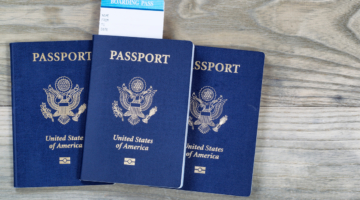A Guide to French Kissing (It’s not what you think!)

If you’ve mastered the basics of French communication (check out The Importance of Saying Bonjour), then perhaps we can move on to more serious things. I’m assuming that during your stay in France you will meet one or two French people… you might even make plans to meet them again for an apéritif. This is when the kissing starts.
Faire La Bise
If you happen to be female, there will be a lot more kissing going on. The general rule is that you should give a peck on the cheek to anyone whom you are introduced to for the first time, any time you join a person or a group of people, any time you leave them, and every time you see them again, no matter where that may be. This is commonly known as ‘faire la bise’ and it’s basically air-kissing but with cheeks firmly pressed together. Men and boys generally only need to do this with girls, a brief handshake is the acceptable way to greet or leave the other males of the species.
However, men beware, as this tendency is changing. Whereas before men would only cheek-kiss close male relatives, this tradition is slowly growing to encompass close male friends. It’s still a matter of debate, but who knows, maybe in a few years, everyone will be kissing everyone. This will, at least, make the whole thing seem less sexist, if not entirely less complicated and time-consuming. Imagine walking into a room of fifteen people, most of whom you are meeting for the first time, and having to go around kissing them all. Then doing it all again as you leave! With this state of affairs, you might be forgiven for wanting to avoid socializing in France altogether…
Technique Depends on Geography… And Class
How many times should you kiss on the cheek? Anywhere from one to four times, it all depends on where you are located. Paris may have traditionally been a four-kiss town (left, right, left, right), but nowadays it is definitely just two. Outside of Paris however, in the Marne region and in the suburbs of Seine-Saint-Denis, four kisses are commonplace. Over in the tip of Brittany, you only kiss once, and down in Montpellier, it’s three times.
Another thing to consider is class. This may not be a popular thing to say in la République, where faire la bise is sometimes thought of as a revolutionary tradition establishing everyone as equals. Nowadays, the bourgeois and the cadres (management-rank workers) will barely brush your cheek as they give you la bise, whereas in more working-class regions, like some Parisian suburbs mentioned above, there’s definitely a ‘the-more-the-merrier’ approach to kissing.
Kissing in the Workplace
All of the above elements should be considered when approaching the workplace. In some professional settings, especially the high-flying private sector, the handshake will dominate. However, in most others, la bise will be more generalized. An off-the-cuff rule might be that you cheek-kiss your colleagues but not your superiors, or that anyone that you tutois (call ‘tu’ instead of ‘vous’) deserves a friendly bise in the morning. Again, to a foreigner, doing the rounds in the office to kiss all of your co-workers every morning will seem like something you should be reporting to the HR department, but you get used to it. Unfortunately, using foreignness as an excuse to avoid this tradition will only work for a limited time.
The Confusing Vocabulary
As I said, when you ‘fait la bise’ you are essentially air-kissing, whereas the term ‘bisous’ generally involves lip-to-skin action. Little kids will often talk of ‘se faire un bisous’ when they see adults kissing on the lips. ‘Faire la bise’ can also sometimes be termed ‘s’embrasser’, although this can also have specific romantic connotations, or confusingly, it can also mean ‘to hug’ (probably where the English term ‘to embrace’ came from). If you want to be specific about what you’re looking for, then you need to talk about ‘s’embrasser sur la bouche’ or ‘à pleine bouche’. This lip-to-lip action is also known as ‘un baiser’, but this takes us into more advanced romantic territory… Stick to ‘une bise’ with the French people you meet and you should be fine!










